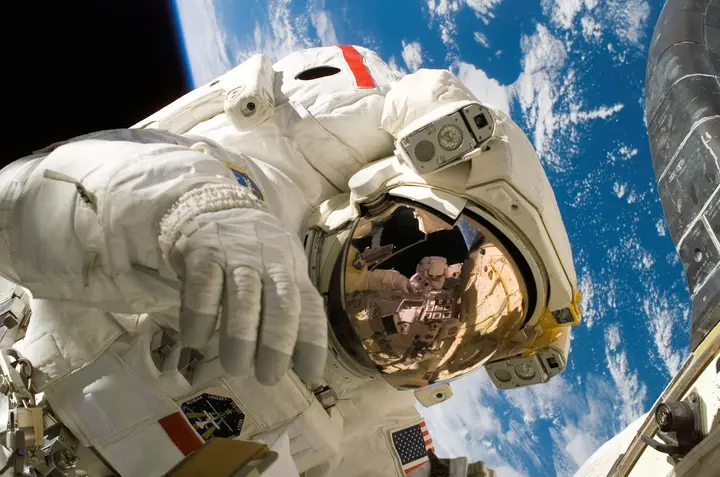The Race for the Presidency: A New Era of Change?
Posted by: sunxin in News 4 months, 1 week ago
Would Joe Biden's withdrawal from the race have swayed your vote? Imagine a political landscape devoid of his presence—would you have stood by him, or would your vote have been cast elsewhere? The question lingers in the minds of many, a testament to the complexity of political decisions and the weight they carry.
The Unspoken Alert: A Tale of舞台Security
Posted by: sunxin in News 4 months, 1 week ago
Have you ever been at the edge of your seat, anticipating the next act, only to be jolted out of your suspense by an unforeseen event? That's exactly what happened during a recent event, and it left everyone questioning the unspoken rules of safety.
The Future Is Ours: A Call for Unity and Happiness
Posted by: sunxin in News 4 months, 1 week ago
Are we, as individuals, the true architects of the future? This question lingered in my mind as I came across a powerful statement from a passionate individual. They expressed a desire to set an example, to showcase that diverse, peaceful, and happy people exist and can thrive anywhere in the world. It's a vision that resonates deeply, especially when considering the current political climate in Thuringia, Germany, where the AfD party has been making significant strides.
The Tipping Point: Bangladesh's Quota System Sparks Nationwide Protests
Posted by: sunxin in News 4 months, 1 week ago
In a groundbreaking move, Bangladesh's Supreme Court has declared the majority of government job quotas null and void, a decision that has far-reaching implications for the nation's socio-political landscape. This judicial action has not only sparked a wave of student-led protests but has also claimed at least 114 lives, casting a dark shadow over the South Asian country. The question that lingers is: how did a system designed to provide opportunities turn into a catalyst for such unrest?
The Pursuit of Security: India's Obsession with Government Jobs
Posted by: sunxin in News 4 months, 1 week ago
In a classroom bustling with ambition in Prag grud, India, students are huddled together, their eyes fixed on textbooks and notes, preparing for a myriad of tests. Among these, the civil services exam stands as a beacon of opportunity, a gateway to a stable career as a federal government bureaucrat. But what drives millions of young Indians to chase these jobs, even as the private sector continues to grow?
The Quest for Truth: A Journey of Self-Discovery
Posted by: sunxin in News 4 months, 1 week ago
In the labyrinth of life, have you ever wondered what it truly means to know? The pursuit of truth is a relentless journey, and while the path may be fraught with complexities, one thing remains certain: I know what I know. But what does that entail? Let's embark on this voyage of self-discovery and unravel the layers of truth.
The Unexpected Turn: Biden's Decision and the Road Ahead
Posted by: sunxin in News 4 months, 1 week ago
What if the leader of the free world, the man who occupies the most powerful position on Earth, decides to step down mid-battle? This isn't a scenario from a political thriller; it's the reality that unfolded as President Joe Biden, at the ripe age of 81, announced his withdrawal from the reelection race. In a post on X, he declared his intention to continue serving as president until January, while acknowledging the greater good for his party and the country.
The Tug-of-War in Democratic Nomination: A Deep Dive
Posted by: sunxin in News 4 months, 1 week ago
The political landscape is never static, especially when it comes to the high-stakes game of choosing a candidate capable of unseating a controversial incumbent. The question that looms over the Democratic Party is whether their current strategy will be enough to achieve this monumental task. What drives a democrat to reconsider their allegiances, and what factors influence their decision-making process?
Can Kamala Harris Break the Ultimate Glass Ceiling?
Posted by: sunxin in News 4 months, 1 week ago
If there's one question that's currently captivating the American political landscape, it's whether the Democratic Party will take a historic leap by nominating Vice President Kamala Harris as its presidential candidate. In a nation grappling with its values, Harris challenges us to reflect: do we truly believe in freedom, opportunity, and the promise of America? The party's decision to bet on Harris is a bold move, banking on her ability to surmount racism, sexism, and her own political missteps to defeat Republican Donald Trump.
The Surprising Twist in the Democratic Presidential Race
Posted by: sunxin in News 4 months, 1 week ago
The Unexpected Move
[Music] The political landscape has been shaken to its core with the latest news: President Biden is not stepping down as the president, but he is stepping aside as the Democratic presidential candidate. This bombshell announcement has left many questioning what this means for the Democratic party and, more importantly, for the upcoming election. How will this shift in strategy impact the political scene?
Recent Posts
- Tragedy Unfolds: The Heartbreaking Attack at Mogadishu's Leo Beach
- Clash in Liverpool: The Battle Between Anti-Racism and Anti-Immigration
- Tragedy Unfolds: Kerala's Heartbreaking Battle with Landslides
- Tragedy in Tarim: A Glimpse into the Aftermath of Israeli Aerial Strikes
- The Tragic Attack on Hamama School: A Story of Innocence Lost in Shik Radwan
Categories
- Official Announcement (3)
- News (1653)
- 新闻 (28)
- Technology (300)
- 科技 (235)
- 科普 (418)
- Science (409)
- 公开课 (180)
- MOOC (183)
- Business (36)
- 揭秘 (143)
- Mysteries (124)



